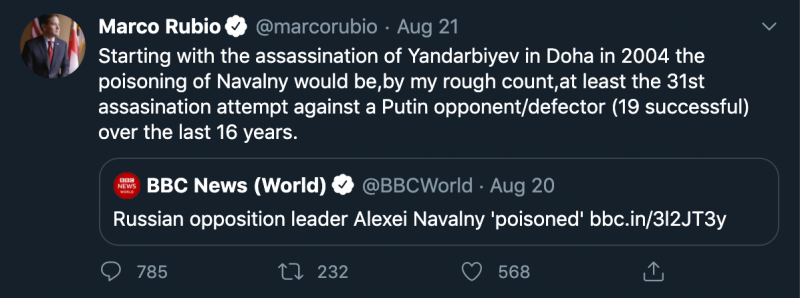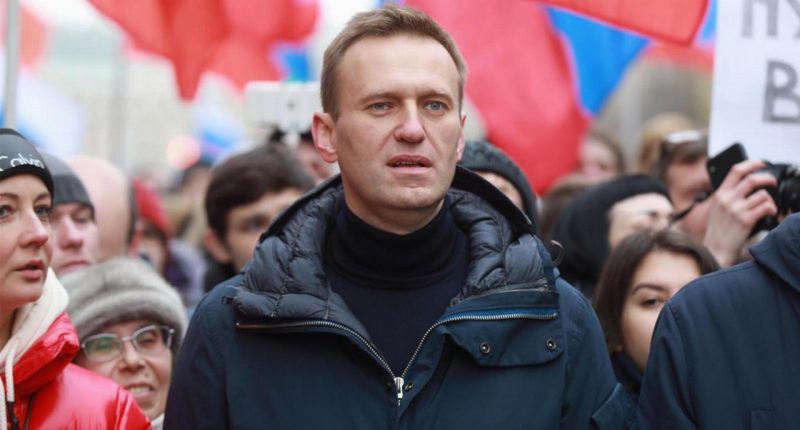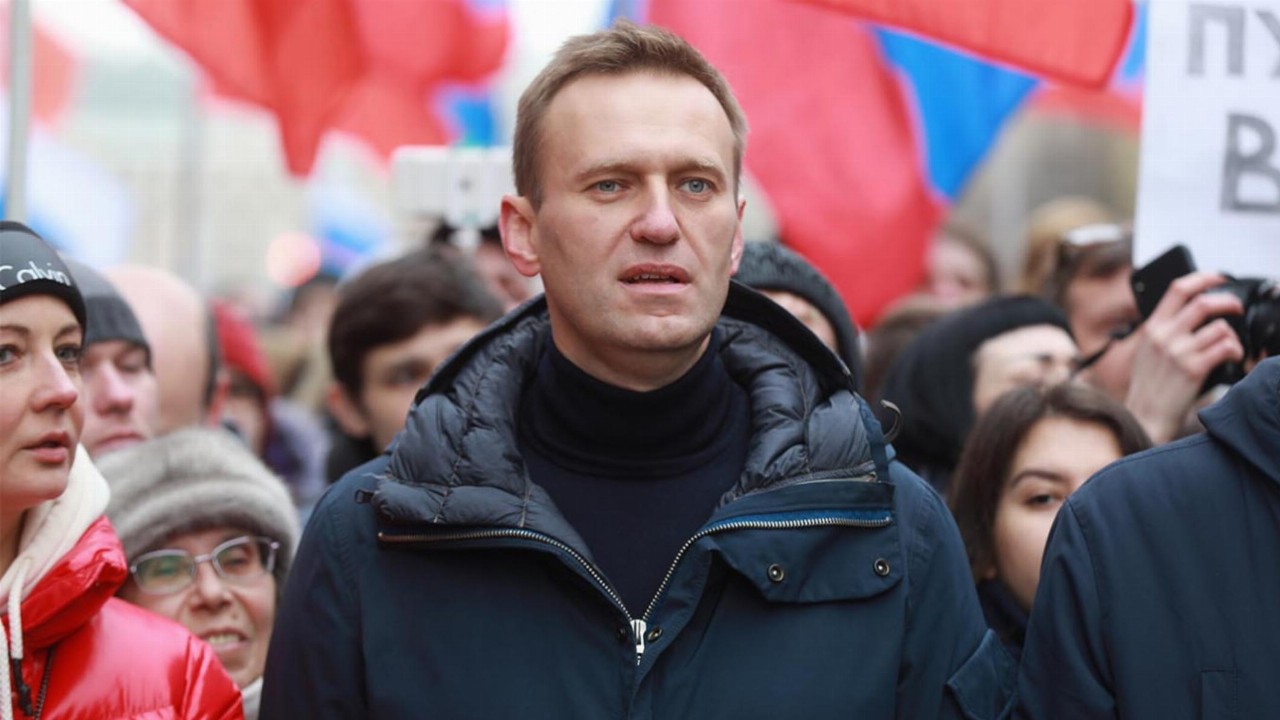- There are increasing international calls for Russia to launch an investigation into the suspected poisoning of dissident Alexei Navalny
- U.S. Secretary of State Mike Pompeo issued a call for a probe into the incident, joining calls from the U.K., Germany and France
- Navalny is being treated in Germany, with evidence indicating use of a nerve agent similar to the Novichok poison used in the 2018 Salisbury attack on Russian double agent Sergei Skripal and his daughter
- The Kremlin has denied involvement in the incident, and officials have accused foreign forces of the attack “to fuel tensions inside Russia”
- U.S. President Donald Trump has so far remained silent on the issue
There are increasing international calls for Russia to launch an investigation into the suspected poisoning of dissident Alexei Navalny.
U.S. Secretary of State Mike Pompeo issued a call for an investigation into the incident.
“If the reports prove accurate, the United States supports the E.U.’s call for a comprehensive investigation and stands ready to assist in that effort,” Pompeo said in a statement issued Tuesday.
“Navalny’s family and the Russian people deserve to see a full and transparent investigation carried out, and for those involved to be held accountable,” he continued.
The findings
The prominent opposition figure fell ill on a flight from Siberia to Moscow after drinking a cup of tea at Tomsk airport.
After spending some time in a Russian hospital, Navalny was transferred to Germany for treatment. The medical team at Charit´´´e University Hospital in Berlin issued a statement on Monday saying Navalny was likely poisoned.
“Clinical findings indicate poisoning with a substance from the group of cholinesterase inhibitors,” the statement read.
“The specific substance involved remains unknown, and a further series of comprehensive testing has been initiated,” it continued.
Cholinesterase inhibitors have various uses, including in therapeutic drugs, pesticides and nerve agents.
Navalny is being treated with the antidote atropine, but remains in an induced coma in intensive care. The Charit´´´e team say the prognosis remains unclear, however, as “the possibility of long-term effects, particularly those affecting the nervous system, cannot be excluded.”
Navalny’s condition is considered serious, but not life-threatening.
Nothing to see here
Kremlin spokesperson Dmitry Peskov has hosed down the likelihood of poisoning, saying German authorities have been too quick to jump to conclusions when the substance is still unknown.
“We do not understand why our German colleagues are in such a hurry in using the word poisoning,” Peskov stated.
“We can’t take such accusations seriously. They absolutely cannot be true. They’re more like ’empty noise’, so we don’t intend to take them seriously,” he said.
German Chancellor Angela Merkel and Foreign Minister Heiko Maas issued a statement calling for an investigation into the alleged poisoning.
Politicians in France, the U.K. and U.S. have joined the chorus demanding an investigation. French President Emmanuel Macron has even offered Navalny asylum should he feel unable to return to Russia.
But the Kremlin is so far refusing to investigate the incident.
House speaker of Russia’s lower house, Vyacheslav Volodin, has even accused foreign forces of the suspected poisoning “to fuel tensions inside Russia.”
Russian roulette
Despite the increasing pressure to launch an investigation, it’s unlikely Russia will concede any ground.
Florida Republican Senator Marco Rubio tweeted his suspicions about the attack on Friday, saying it was “at least the 31st assassination attempt against a Putin opponent/defector.”

A number of other representatives from both sides of the aisle have also called for an investigation, or have accused the Russian regime of the attack.
There have been several high-profile poisonings linked to Vladimir Putin’s regime over the years, though the Russian strongman has always denied his government’s involvement.
In a striking coincidence, the Novichok nerve agent used in the infamous 2018 Salisbury attack on Russian double agent Sergei Skripal and his daughter was based on cholinesterase inhibitors.
In 2006, Intelligence officer Alexander Litvinenko died after his tea was poisoned with polonium-210, a highly radioactive substance.
So far, U.S. President Donald Trump has remained silent on the issue.







